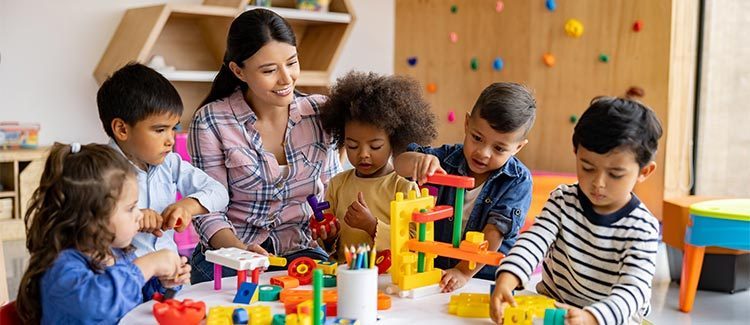Kids do not spend nearly enough time outside. At least not as much as they did ten/twenty years ago. Playtime importance has declined significantly over the years, which can have detrimental effects on their physical and emotional wellbeing.
For children in their early years, playing is learning. Unfortunately, society as a whole does not associate play with learning. It helps them grow and develop, face their fears and process their emotions. Play is also a great way to introduce children to new interests and build skills they will use in the future.
Let’s discuss playtime importance and how it can help children develop into confident, competent adults.
What Do Kids Learn Through Play?
There’s more to play than fun and games. It provides a foundation for learning, exploring, critical thinking, and healthy physical development.
1. Playtime importance teaches children to think flexibly
Is there anything quite as malleable as a child’s mind?
Playtime stimulates early brain development. An environment enriched with play provides the perfect life experiences for children of all ages. Toys and games can alter a child’s brain and influence cognitive development.
Kids learn how things fit together through play. They explore the world around them and their role in it. Children also start to understand the principle of cause and effect through play, improving intelligence and helping them process information.
2. Play teaches children to be creative
Through play, children learn to pretend, create and imagine. Such skills eventually evolve into brainstorming, conceptualization, and critical thinking skills.
Creativity is closely tied to divergent thinking and innovation. It’s the process through which new ideas and solutions are born. It’s also a great way to nurture artistic and dramatic talent in a child. Play allows children to develop their imagination and create a world they can master.
3. Play allows for social development
When play is child-driven, it creates an environment that inspires children to be leaders, collaborators, and inventors. It improves their linguistics skills and teaches children the importance of sharing, negotiation, conflict resolution, and self-advocacy. Social play allows children to learn new vocabulary from one another and improves their communication skills as they listen, share ideas, and learn to compromise.
In contrast, adult-driven play can stifle creativity and social development as children acquiesce to adult rules and concerns. Even then, playtime enables children to develop an understanding of social expectations and norms.
4. Playtime importance teaches self-regulation
Impulse control and emotional regulation are critical skills for success. A child with self-regulation is better able to wait their turn, control negative emotions, and persist through challenging activities. In addition, playtime teaches children to understand and process their feelings. For instance, they learn to process sadness and anger when they lose a game. Winning, on the other hand, builds self-efficacy and self-esteem.
In addition to self-control, playtime importance helps children develop a sense of empathy for others so they can get along with other people and take their needs and emotions into consideration.
Early Learning: Where Play Develops with Children
Playtime importance is in short supply for children these days. Taking your kids to a high-quality care center can fulfill their needs for play and help them grow into well-rounded kids.
Your child’s physical and cognitive abilities develop as they grow. Therefore, playtime should evolve and grow in complexity with your children’s abilities. This way, they can develop their fine and gross motor skills as well as social, language, and communication skills.

